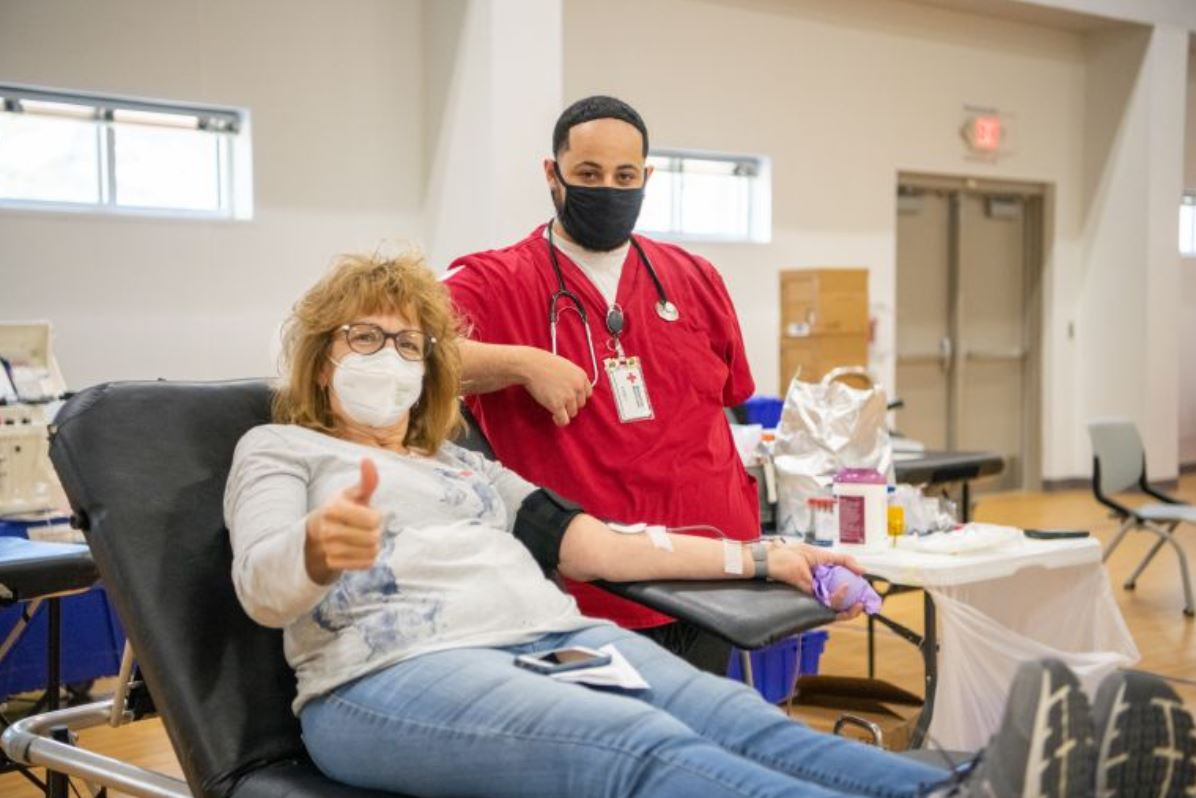The American Red Cross warned Tuesday it is facing its “worst blood shortage in more than a decade,” attributable in part to blood drive cancellations and staffing limitations posed by the COVID-19 pandemic.
The nonprofit humanitarian organization said it was recently down to a one-day supply of critical blood types and has had to limit vital blood distribution to hospitals that need them to treat their patients.
Donors of all blood types – especially type O − are urged to make an appointment in the weeks ahead. Currently, about 54 percent of donation appointments remain unfilled in the Red Cross Northern California Coastal Region, the Red Cross said.
“Winter weather across the country and the recent surge of COVID-19 cases are compounding the already-dire situation facing the blood supply,” said Dr. Baia Lasky, medical director for the Red Cross. “Please, if you are eligible, make an appointment to give blood or platelets in the days and weeks ahead to ensure no patient is forced to wait for critical care.”
The Red Cross is not alone in its concern. The Stanford Blood Center is currently facing an emergency need for all blood types and has only a few days of blood on hand, Executive Director Harpreet Sandhu said in a separate statement Tuesday. Meanwhile, demand at hospitals has increased and “shows no signs of slowing down in the coming weeks,” Sandhu said.
“With many of our regular donors out sick right now, we are asking for anyone who is healthy and eligible to please make an appointment as soon as possible,” Sandhu said.
To encourage donations, the Stanford Blood Center is raffling off a two-night stay at a Ritz-Carlton resort this month, and also offering $10 gift cards from Peet’s Coffee, Lowe’s, Jamba Juice or Chipotle from Jan 13-17.
Meanwhile, the Red Cross and the NFL are partnering this month to offer donors opportunities to win a getaway to Super Bowl LVI in Los Angeles, a home theater package and a $500 e-gift card.
The incentives come amid a surge of COVID-19 cases caused by the fast-spreading omicron variant. The pandemic has posed “relentless challenges” on blood banks, according to the Red Cross, which cited a 10 percent overall decline in the number of people donating blood and a 62 percent drop in blood drives at schools and colleges.
“Dangerously low blood supply levels are posing a concerning risk to patient care and forcing doctors to make difficult decisions about who receives blood transfusions and who will need to wait until more products become available,” the Red Cross said. “Blood and platelet donations are critically needed to help prevent further delays in vital medical treatments.”
Kala Breder nearly lost her life in July 2020 due to a shortage of blood supply, according to the Red Cross. She began bleeding uncontrollably shortly after the birth of her son and doctors “exhausted the entire blood supply at the hospital as well as all available blood within a 45-mile radius” while treating her. Breder was flown to another hospital due to the lack of local supply. Fifty-eight different blood products helped save Breder’s life, the Red Cross said.
“Without one of those, I probably wouldn’t be here,” she said. “I needed every last unit.”






